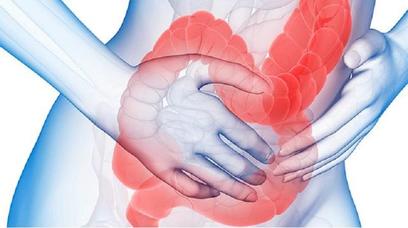Vitamin D could help millions of people with irritable bowel syndrome

Vitamin D supplements could be the answer for the millions of people suffering from irritable bowel syndrome (IBS) who want to ease their painful symptoms, research suggests.
A new study from the University of Sheffield found high prevalence of vitamin D deficiency in IBS patients – regardless of their ethnicity. Scientists reviewed and integrated all available research on vitamin D and IBS, a condition which affects 1 in 5 people in the UK.
Their findings suggest supplements may help to ease symptoms which can include abdominal pain, bloating, diarrhoea and constipation. Vitamin D was shown to have the most benefit on quality of life in IBS.
Low vitamin D status has already been associated with the risk of colorectal cancer and has been implicated in inflammatory bowel disease.
The latest study, published in the European Journal of Clinical Nutrition, follows one from last week where researchers found conclusive evidence that a changed diet can curb IBS symptoms in three-quarters of sufferers.
IBS is a debilitating functional disorder of the gastrointestinal (GI) tract. Little is known about why and how the condition develops, although it is known that diet and stress can make symptoms worse. The symptoms often cause embarrassment for patients meaning many live with the condition undiagnosed.
IBS accounts for 10 per cent of visits to GP surgeries and the condition has a significant and escalating burden on society as a consequence of lost work days and time spent on regular hospital appointments.
Lead author of the new study, Dr Bernard Corfe, said: “It is evident from the findings that all people with IBS should have their vitamin D levels tested and a large majority of them would benefit from supplements. IBS is a poorly understood condition which impacts severely on the quality of life of sufferers. There is no single known cause and likewise no single known cure.”
https://inews.co.uk/news/health/vitamin-d-ibs-painful-symptoms-help/
A new study from the University of Sheffield found high prevalence of vitamin D deficiency in IBS patients – regardless of their ethnicity. Scientists reviewed and integrated all available research on vitamin D and IBS, a condition which affects 1 in 5 people in the UK.
Their findings suggest supplements may help to ease symptoms which can include abdominal pain, bloating, diarrhoea and constipation. Vitamin D was shown to have the most benefit on quality of life in IBS.
Low vitamin D status has already been associated with the risk of colorectal cancer and has been implicated in inflammatory bowel disease.
The latest study, published in the European Journal of Clinical Nutrition, follows one from last week where researchers found conclusive evidence that a changed diet can curb IBS symptoms in three-quarters of sufferers.
IBS is a debilitating functional disorder of the gastrointestinal (GI) tract. Little is known about why and how the condition develops, although it is known that diet and stress can make symptoms worse. The symptoms often cause embarrassment for patients meaning many live with the condition undiagnosed.
IBS accounts for 10 per cent of visits to GP surgeries and the condition has a significant and escalating burden on society as a consequence of lost work days and time spent on regular hospital appointments.
Lead author of the new study, Dr Bernard Corfe, said: “It is evident from the findings that all people with IBS should have their vitamin D levels tested and a large majority of them would benefit from supplements. IBS is a poorly understood condition which impacts severely on the quality of life of sufferers. There is no single known cause and likewise no single known cure.”
https://inews.co.uk/news/health/vitamin-d-ibs-painful-symptoms-help/
